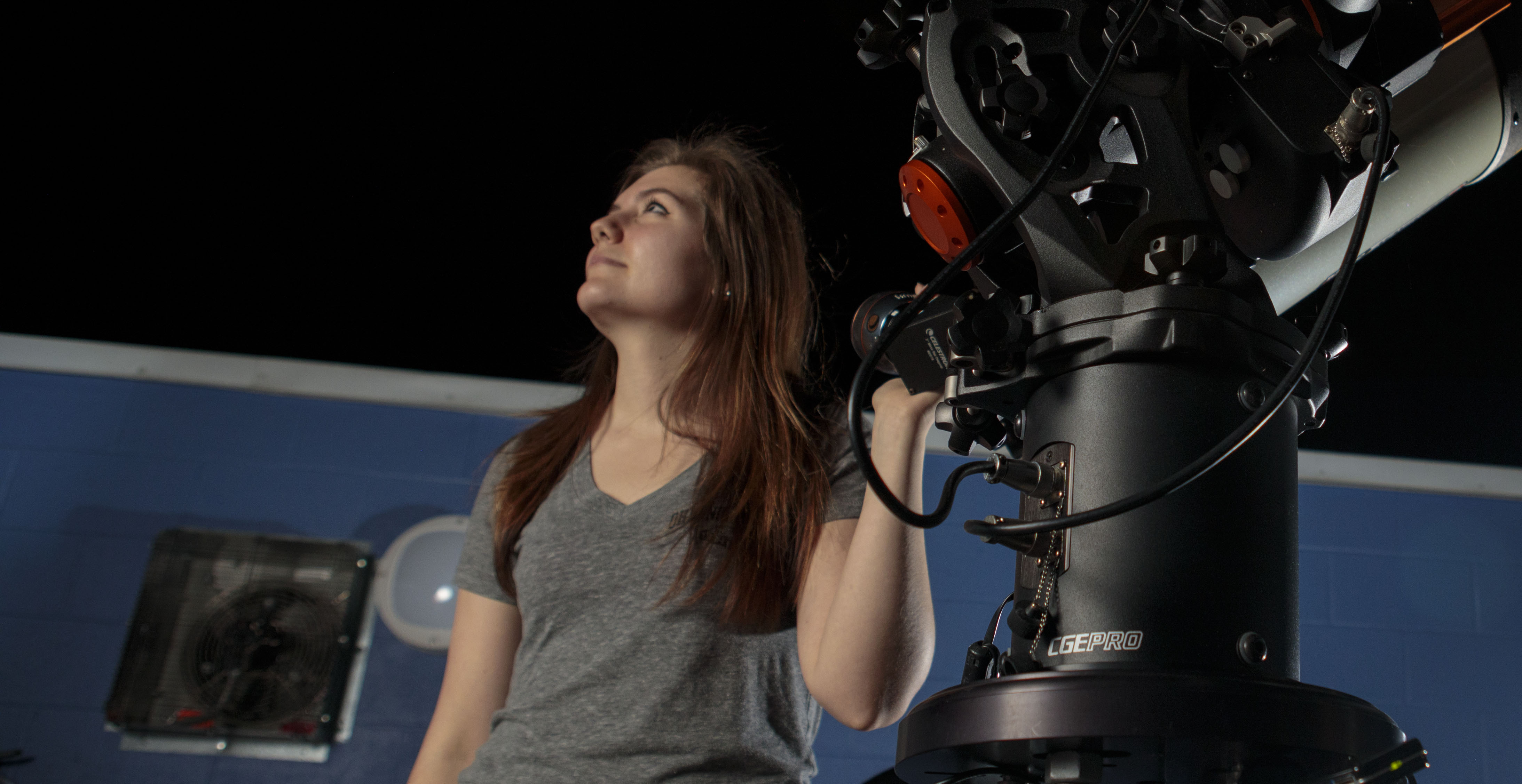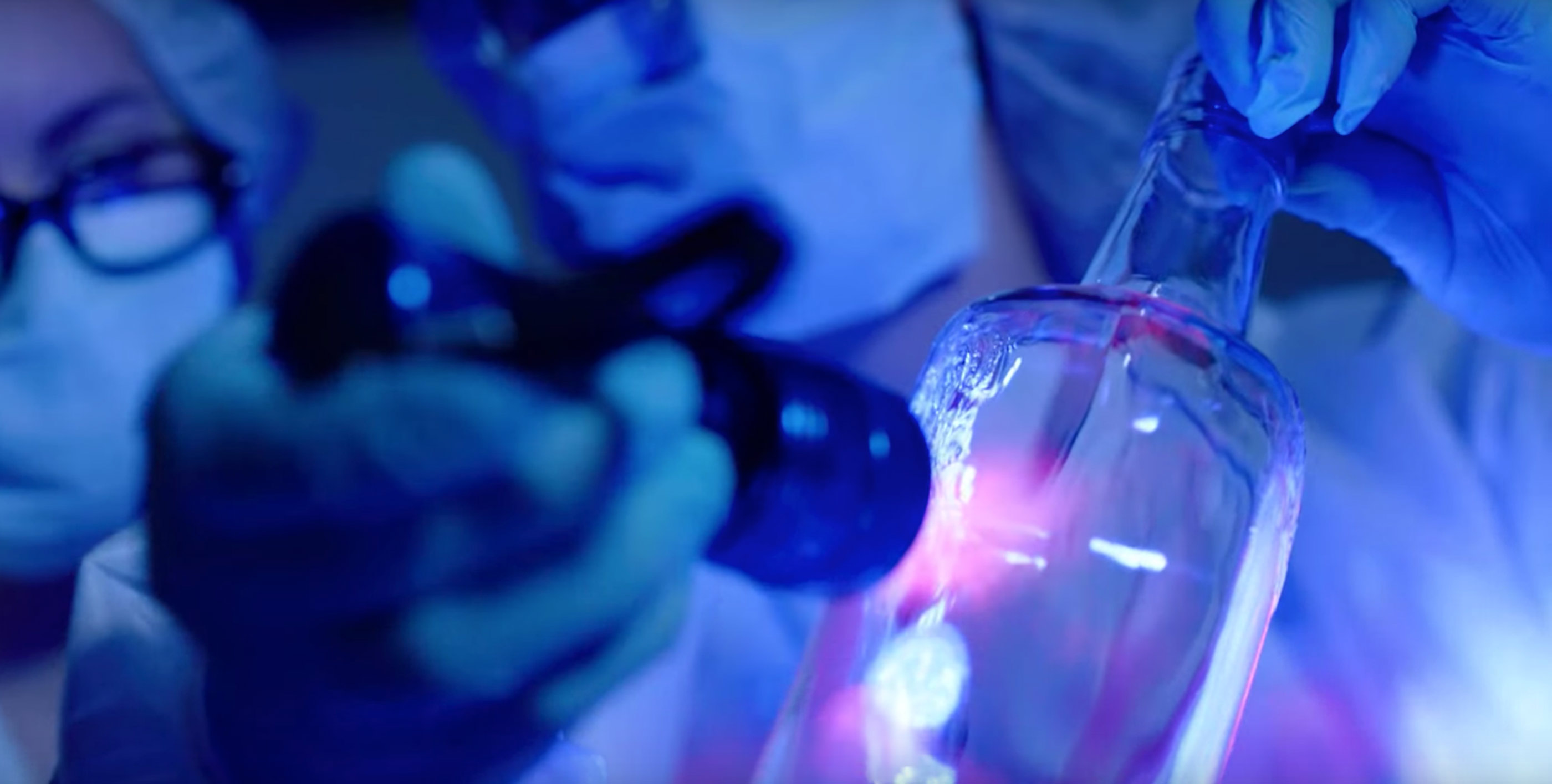The astronomy minor can be combined with many majors to prepare you for an exciting niche career path. A biology major can become an astrobiologist who studies life on exoplanets. A chemistry major can go into cosmochemistry (studying meteorites to discern the formation of the solar system) or astrochemistry (focusing on the molecules of the interstellar medium). An English major can go into science journalism, specializing in physics and astronomy. The list goes on: you could be a science illustrator or an archaeoastronomer. In order to do these jobs well, you need the kind of knowledge provided by our astronomy minor program.
Our introductory astronomy classes – Planetary Astronomy and Stars and Galaxies – cover historical astronomy and also the latest observations from modern space missions. These both have a laboratory component in which students make use of the ONU Observatory, a roll-off roof facility that contains three, pier-mounted "goto" telescopes and specialized CCD cameras for astrophotography. Additional courses include Modern Physics and Introductory Astrophysics. Here, astronomy students will be challenged with problems to deepen your understanding of such things as orbits, light, matter and relativity.
The astronomy concentration in physics is intended for students who aspire to become astronomers or physicists. Astronomy graduate schools are especially competitive, and they only admit students who show not only a good understanding of physics, but also a great zeal for astronomy. Such astronomy students need as much practice in physics as possible. Electricity and Magnetism, Quantum Mechanics, and Analytical Mechanics are essential, as well as the courses listed above for the minor. We also require a computer programming course since this is a crucial skill for scientists. Along the path to a Ph.D., you will also develop transferable skills in statistics and technical writing. Employment opportunities will not be an issue – we strive to give you the physics foundation required to remain in science-related fields.


